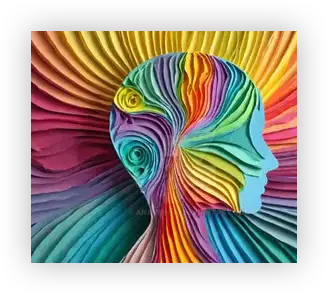Obsessive Compulsive Disorder (OCD) at Reliant Family Psychiatry in Mansfield & Grand Prairie, TX.
At Reliant Family Psychiatry, we understand obsessive-compulsive disorder (OCD) as a mental health challenge where individuals experience persistent, unwelcome thoughts or impulses, commonly called obsessions.
These obsessions drive a person to engage in repetitive actions or rituals, which are the compulsions. The experience of these obsessive thoughts typically leads to increased anxiety and emotional turmoil, leading individuals to turn to their compulsive behaviors as a way to try to ease these intense feelings.


Symptoms & signs of OCD
At Reliant Family Psychiatry, we understand that individuals experiencing OCD may manifest a range of symptoms.
These can include:
- Disturbing and intrusive thoughts or ideas that generate anxiety.
- Repeated actions or mental rituals aimed at alleviating anxiety.
- Persistent doubts and concerns about harm befalling oneself or others.
- An overwhelming desire for order, cleanliness, or symmetry.
- Avoidance of specific individuals, locations, or situations due to the fear of inciting obsessions or compulsions.
Misconceptions About OCD
OCD is a term that has permeated popular culture and the media. Frequently, individuals with OCD are depicted as exceptionally neat or tidy, yet the reality is far more complex.
In truth, those affected by OCD may contend with a diverse range of thoughts and behaviors. While occasional obsessive thoughts and compulsive behaviors can be experienced by many, genuine OCD has a profound impact on an individual’s daily life.
It is essential to bear in mind that OCD is not a matter of choice; it is a mental health condition that demands compassionate care and appropriate treatment.
Diagnosing Obsessive-Compulsive Disorder (OCD)
At Reliant Family Psychiatry, we approach the diagnosis of OCD with care and understanding. Our mental health experts conduct detailed discussions to grasp the nature of a person’s symptoms and behaviors. This deep dive helps us determine if these experiences meet the criteria for OCD.
To better understand the extent of a person’s OCD, our team might use specialized tools like the Yale-Brown Obsessive-Compulsive Scale. It’s also important to recognize that OCD symptoms can sometimes mirror those of other psychiatric conditions.
Additionally, it’s not uncommon for individuals to face other mental health issues simultaneously. Our comprehensive approach ensures we consider every facet of a person’s mental health.

Treatments for Obsessive Compulsive Disorder

Psychiatry Practices
For managing GAD, it's often advisable to combine medication with psychiatric evaluations. Our team ensures a personalized treatment strategy aligning with your unique symptoms and requirements. Continuous monitoring of your progress and symptoms is an integral part of this treatment, allowing us to fine-tune medication doses and frequency for optimal results.

Therapies
Also known as Psychotherapy (Talk Therapy), talk therapy is an effective option for a number of different symptoms and conditions, including GAD. Talk therapy can take many different forms, so you and your therapist can work to find the best option for your specific situation, condition, and symptoms. Talk therapy can be used in combination with medication and other forms of treatment, if needed.

Cognitive Behavioral Therapy
A common form of psychotherapy, cognitive behavioral therapy is designed to help you identify negative or inaccurate thinking in your life so you are more capable of assessing difficult situations more clearly in the future. CBT helps individuals uncover unhelpful patterns, learn coping strategies, and alleviate symptoms of depression.

Discover a brighter mental well-being journey at Reliant Family Psychiatry in Texas!
- We're here to guide you every step of the way. Choose Reliant Family Psychiatry today


